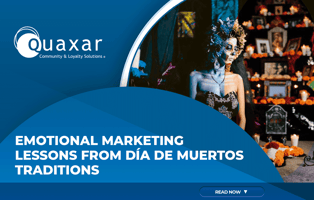En el mundo digital, los datos recopilados a través del CRM son el recurso más valioso para una...
New Strategies to Maximize CRM Data in Digital Marketing
In the digital world, data collected through CRM is the most valuable resource for a company. Having a CRM (Customer Relationship Management) system that collects and organizes this data is essential, but knowing how to maximize its potential can make a significant difference in your marketing campaigns. It is important to understand and master these strategies to make the most of the data collected through CRM. Transforming it into valuable insights that drive your marketing decisions, enhancing the effectiveness of your campaigns and giving you an edge over your competitors.
Advanced Audience Segmentation
CRM data can be used to create more precise segments through segmentation. By analyzing demographic, geographic information, purchase behaviors, and individual preferences, companies can identify different groups within their customer base. This facilitates the creation of highly targeted and relevant marketing campaigns, improving the effectiveness of strategies and increasing customer satisfaction. With accurate segmentation, it is possible to deliver more personalized and timely messages that resonate with each audience segment, thus maximizing the data collected through CRM in your digital marketing campaigns.
Marketing Automation
Automated campaigns based on customer behavior and interactions significantly enhance the efficiency and effectiveness of marketing strategies. By using CRM data, companies can create automated workflows that send personalized messages at the right time, according to customer actions and preferences. This not only saves time and resources but also ensures more relevant and timely communication, increasing customer satisfaction and loyalty.
Content Personalization
Personalizing content is essential for creating more relevant and engaging marketing experiences. Using demographic and behavioral data collected through CRM, companies can tailor their messages and offers to meet the specific needs of each audience segment. This not only increases the likelihood of conversion but also improves the customer experience, demonstrating that the company understands and values their interests and preferences.
Customer Retention and Loyalty
Retaining existing customers is as important as acquiring new ones, and CRM plays a crucial role in this process. By tracking and analyzing customer preferences and behaviors, companies can develop personalized strategies to enhance loyalty. This includes sending exclusive offers, loyalty programs, and regular communications that keep customers engaged and satisfied, fostering long-term relationships and reducing churn rates.
ROI in Marketing Campaigns
Measuring return on investment (ROI) is essential for evaluating the effectiveness of marketing campaigns. CRM provides a rich source of data and metrics that allow companies to analyze the performance of their marketing strategies in detail. By comparing campaign costs with generated revenue, companies can identify which tactics are most effective and adjust their efforts to maximize ROI. This not only helps optimize resources but also ensures a more strategic and cost-effective approach to future campaigns.
In summary, maximizing the data collected through CRM in your digital marketing campaigns requires an effective combination of strategies. Advanced segmentation allows for the creation of more precise audiences, while automation optimizes campaigns based on customer behavior. Personalizing content and offers according to specific data improves relevance and engagement. Additionally, focusing on retention and loyalty helps strengthen customer allegiance. Finally, analyzing the ROI of your campaigns will enable you to adjust and refine your strategies to achieve the best possible results. By implementing these tactics, you can transform how you manage and leverage customer information to drive the success of your campaigns.
.
.



